ICPKP® Diploma of Nutritional and Dietary Sciences

This training equips you with essential skills to support clients facing immune imbalances, adrenal fatigue, chronic exhaustion, and overgrowth of harmful bacteria, viruses, and parasites. You will learn to implement detox programs addressing chemical excess, heavy metals, medication interactions, and substance abuse.
As a practitioner, you’ll guide clients through desensitizing food sensitivities, gain expertise in nutritional analysis, metabolic support, lifestyle adjustments, and stress management. You will also learn how to enhance blood sugar regulation, improve oxygen uptake, and promote overall vitality.
Our five home study units in Anatomy, Physiology, Chemistry, Biochemistry, and Pathophysiology make learning easy and accessible.
a. ICPKP® Stress and Pain Management Certification Program

Completion of BKP 106, BKP 107, RBT 201 and EMS 201 from Level 1
SPM 101 Stress Release made Easy – Half Day LDP (also in K-Power® format)
SPM 102 Epigenetic Healing cycles – Half Day LDP (also in K-Power® format)
SPM 103 Tibetan Energy & Vitality – Half Day LDP (also in K-Power® format)
b. ICPKP® Red Flags in Kinesiopractic® Certification Program
Learn to recognise the red flags that mean it’s time to refer your client to a medical professional.
This is a must-have certification program, which is why we include it in all PKP™ Diplomas.
What you will learn and why:
- Seven reasons why diagnosis is important – eg. is this a medical emergency?
- How and why to use standard systematic questions in history taking.
- What to do when muscle weakness is not an unlocking muscle.
- Recognising a mental disorder, and what to do next.
- How to use Flow Charts – you may save a life.

Note: this course is taught only by specialist ICPKP Red Flags Faculty members. Students who have not yet completed the prerequisite PKP™ Practitioner Certification may be permitted to take the OCT 302 Red Flags unit early if they have completed the Certificate in High Level Wellness & Vitality, at the discretion of the Red Flags Faculty member.
ICPKP® Nutritional and Dietary Sciences
8 x Face to Face classes
Prerequisites: Level 1 Kinesiopractic. Must have completed BKP 106, BKP109 + RBT 201
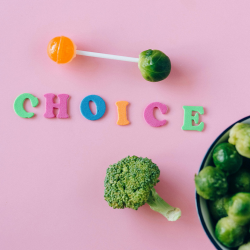
ECO 201 Dietary and Lifestyle Modification Protocols
2-Day In-Person Class + 14 Hours Home Practice
This is the first of four practical units focused on enhancing your skills in nutritional health and well-being. You’ll learn to communicate dietary changes effectively, helping clients address nutritional imbalances and emotional well-being. Through PKP techniques, you’ll assess how foods and supplements impact your clients’ bodies and emotional states.
Key skills include conducting nutritional analysis, recognizing deficiencies or toxic exposures, and understanding the balance of slow/fast vibratory foods. Using Dr. Riddler’s reflex points, you’ll help clients optimize blood sugar, liver function, and make informed lifestyle changes for overall health.
ECO 202 Immune Mismatch Responses: ‘Allergies’ & Sensitivities
2-Day In-Person Class + 14 Hours Home Practice
This unit teaches you to use PKP techniques to address energy imbalances related to allergies and hypersensitivities. You’ll learn to identify and desensitize the body to Immune Mismatch Responses™ (IMR™), using sensitivity modes to pinpoint and resolve stressful substances. You’ll also gain skills in conducting general and specific cleanses.
By the end of the unit, you’ll be proficient in using IMR™ modes such as the C1 sensitivity test, Ear Acu-point, and Quasi Voll acu-points. Additionally, you’ll understand common IMR™ symptoms, trigger foods, and utilize the PKP Balance Protocol, including updated fingermode databases and homeopathic allergen test vials.


ECO 301 Adrenal, Geopathic and Life Energy Protocols
2-Day In-Person Class + 14 Hours Home Practice
This unit focuses on addressing chronic fatigue using PKP techniques to increase energy, vitality, and wellness through nutritional and environmental health. You’ll learn to identify the body’s reactions to external stimuli and adrenal responses to harmful chemicals. PKP methods will help you manage chronic fatigue, geopathic stress, and residual energy from buildings and environments, including the use of magnetic energy.
Upon completion, you’ll be able to design well-being programs, reverse health decline, use acu-point re-sets to enhance vitality, improve oxygen uptake, and address adrenal dysfunction. You’ll also guide clients in managing electrical drains and geopathic stress.
ECO 302 Cleansing & Detoxification Protocols
2-Day In-Person Class + 14 Hours Home Practice
The fourth ECO unit equips you with skills to balance body energy affected by toxins, organisms, and chemicals, providing a deeper understanding of detoxification and biochemical pathways. You’ll learn to identify and resolve energy imbalances from excessive supplementation, foreign chemicals, and immune dysfunction.
You’ll gain the ability to test, assess, and balance energy related to bacterial and viral imbalances, as well as parasites. Additionally, you’ll address heavy metal toxicity, drug-related imbalances, and use your knowledge of detoxification processes to perform clearing procedures, offering comprehensive nutritional and emotional support.
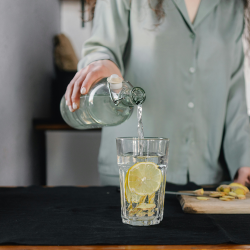
Home Study Modules
NUT1 -Dietary and Nutritional Science
This home study unit covers the theory of Nutrition to an introductory level as it pertains to the kinesiologist. It will give students the knowledge of the role of nutrition for the homeostasis of the body as well as the ability to analyse dietary requirements and to make suggestions based on that analysis.
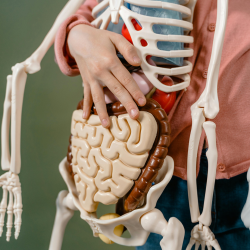
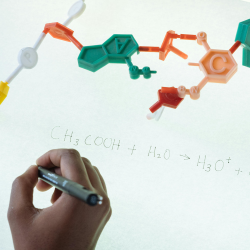
CBP Part1 – Clinical Chemistry
This unit introduces the fundamentals of Chemistry, focusing on its relevance to kinesiology. Students will learn the role of chemistry in maintaining homeostasis, as well as how to analyze physiological processes and biochemical reactions within the body.
Upon completing this course, students will; Understand the scope and significance of chemistry, differentiate between organic and inorganic chemistry, gain insights into the chemical structure and function of the body, recognise the role of chemical and biochemical functions in health, appreciate the connection between chemistry and kinesiology.
CBP Part2 – Clinical Biochemistry
CBP Part 1: Biochemistry
This unit introduces the fundamentals of Biochemistry as it relates to kinesiology. Students will learn the role of biochemistry in maintaining homeostasis and gain the ability to analyze physiological processes and biochemical reactions within the body.
Upon completion, students will; understand the scope and significance of biochemistry, Differentiate between organic and inorganic chemistry, Gain insights into the chemical organization of the body, Learn the role of chemical and biochemical functions in health, Appreciate the connection between biochemistry and kinesiology.
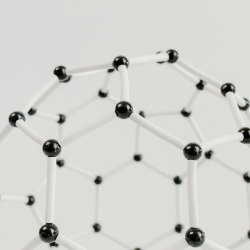
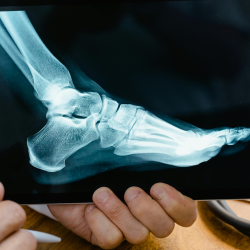
Pathology 1 – Musculoskeletal Injuries
The Pathology sector of CBP introduces the theory of pathology in kinesiology, divided into three units: Pathology 1, 2, and 3. Students will gain foundational knowledge of pathological conditions, the role of medical assessment, and the management of injuries. They’ll also analyze physiological processes related to health, injury, and disease.
Upon completing Pathology 1, students will understand injury mechanisms, musculoskeletal injuries, and the healing process. They will learn about injury assessment, diagnosis, and common treatment modalities, including pharmacological treatments and electrotherapy. Additionally, students will explore rehabilitation, injury prevention, and recognize signs, symptoms, and treatment approaches for common injuries across various body regions.
CBP Part4 – Pathology 2 – Mechanisms of Illness A
The Pathology sector of CBP introduces the theory of pathology in kinesiology, divided into three units: Pathology 1, 2, and 3. Students will gain foundational knowledge of pathological conditions, mainstream medical assessment, and management of injuries and illnesses. They will also learn to analyze physiological processes related to health, injury, and disease.
Upon completing Pathology 2, students will understand the mechanisms of illness in relation to body systems. They will explore diagnostic processes, treatment modalities, and the rationale behind diagnostic investigations. Additionally, students will learn about genetic mutations, cancer, and biological and environmental causes of disease. They will also identify common conditions and treatments related to the integumentary, nervous, ear, eye, nose, and endocrine systems.


CBP Part5 – Pathology 3 – Mechanisms of Illness B
The Pathology sector of CBP, divided into three units, provides students with an understanding of pathological conditions and their role in the assessment and management of illnesses. Students will gain the ability to analyze the mechanisms of illness, including genetic mutations, cancer, and environmental causes of disease, and explore the therapeutic sequence of assessment, diagnosis, and treatment.
Upon completing Pathology 3, students will be able to identify common conditions of the cardiovascular, lymphatic, respiratory, digestive, urinary, and reproductive systems. They will learn about diagnostic investigations, pharmacological treatments, and non-specialist modalities. The course also covers the prevention of illness and provides an in-depth understanding of genetic factors and disease mechanisms.
Start the ICPKP® Diploma in Dietary and Nutritional Sciences Now!
The prerequisites for any of the units in any our Diploma’s, is Level 1 Kinesiopractic
Our Next Intake Starts February 2026
Register Your Interest and get more info
Book an Info Session

